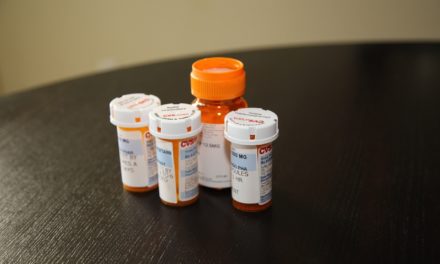Statewide Initiative Supports Behavioral Health of I.E. Youth
RANCHO CUCAMONGA — One in five young women and one in ten young men experience a major depressive episode before the age of 25, according to the American Psychological Association.
The COVID Collaborative notes one in 330 California children have lost either a parent or caregiver in the last two years, adding significant stress and trauma to the lives of California’s youth, along with stay-at-home orders and remote learning.
Amidst what is being called a national youth behavioral health crisis, Inland Empire Health Plan (IEHP) is partnering with Molina Healthcare, County Behavioral Health, the Offices of Education in Riverside and San Bernardino counties, and select local school districts and charter schools to implement the Student Behavioral Health Incentive Program (SBHIP).
The three-year program is in accordance with the California Department of Health Care Services’ (DHCS) goal to expand prevention and early intervention behavioral health services in schools and provides financial incentives to partnering school districts and charter schools. A total of $389 million has been allocated for California. Between both IEHP and Molina Healthcare, up to $50,845,334 can be utilized to support this program.
“If the past few years have taught us anything, it’s that we need to be proactive in addressing mental health and wellness needs early on, before traumas have a chance to manifest later in life,” said Amrita Rai, IEHP’s clinical director of community behavioral health.
Through SBHIP efforts, existing mental health initiatives will be bolstered, and coordination between schools, managed care plans, county behavioral health and community partners aim to address the equity gap and improve access to mental health prevention and treatment for students. Resources will be directed to fill gaps in these areas throughout the participating schools and their respective communities. Services will be limited to schools who are participating in SBHIP and who receive funding.
“We are well into a crisis when it comes to the mental health and wellness of our youth. Now is the time to be bold and work tirelessly for our children because what we do now will affect generations to come,” said Rai. “Why not focus our resources, our passion, and our commitment back into the community and schools? Our children spend most of their lives in school, which makes this multi-organizational partnership so worthwhile.”
Partnerships with local education agencies and school sites include San Bernardino County Superintendent of Schools (SBCSS); Riverside County of Education; Palm Springs Unified School District; Hemet Unified School District; San Bernardino City Unified School District; Rialto Unified School District; Victor Valley Union High School; Ontario-Montclair School District; Leadership Military Academy; Nuview Union School District; Provisional Accelerated Learning Academy; and Riverside County Office of Education Alternative Education Program. While the initiative will begin at these partner sites, it is anticipated that learnings would benefit other schools and districts interested in implementing similar programs in the future.
“San Bernardino County Superintendent of Schools recognizes the growing mental health crisis among our youth and supports this joint effort to address this critical issue,” said County Superintendent Ted Alejandre. “SBCSS seeks to build capacity within countywide systems and increase access to much needed support to ensure every child receives the services they need when they need them.”
“Educators at the Riverside County Office of Education and within all Local Educational Agencies (LEA) in Riverside County, are vitally interested in addressing the needs of the whole student beyond the classroom. Linking arms with partners across the county via the Student Behavioral Health Incentive Program (SBHIP) will equitably provide mental health services to those who might not otherwise have access to this level of support,” said Riverside County Superintendent of Schools, Dr. Edwin Gomez.
Selection of school districts and charter schools was dependent on DHCS guidelines and considered specific criteria, such as the number of students who received Medi-Cal, were foster youth or English learners, received free or reduced priced meals, were interested in participating in the program and other factors.
“It’s the right thing to do. This program gives us a great opportunity to extend both heart and hand to children in our community,” said Dr. Takashi Wada, IEHP’s chief medical officer. “Working together, we can equip them with necessary skills, habits and care they can use today and through adulthood, setting them up for a healthier and happier tomorrow.”
“The COVID-19 pandemic has exacerbated and elevated behavioral health needs in our communities, including in young people. Mental and emotional wellbeing make up a significant portion of overall health and healthy youth lead to improved community wellness. We are proud to partner with IEHP, local offices of education and mental health professionals to address the youth behavioral health crisis in tangible, preventative ways.” said Dr. Sayeed Khan, chief medical officer at Molina Healthcare.
Program preparation began this year and will support a January 2023 launch at all 10 participating local education agencies. Through careful planning and implementation, the program will aim to build and support a sustainable system beyond the life of the program, which will end in December 2024.





![Enrolling Now, Rewarding Careers Ahead [Sponsored]](https://ukenreport.com/wp-content/uploads/2024/04/COD_heroes_1-1385-2-440x264.jpg)

